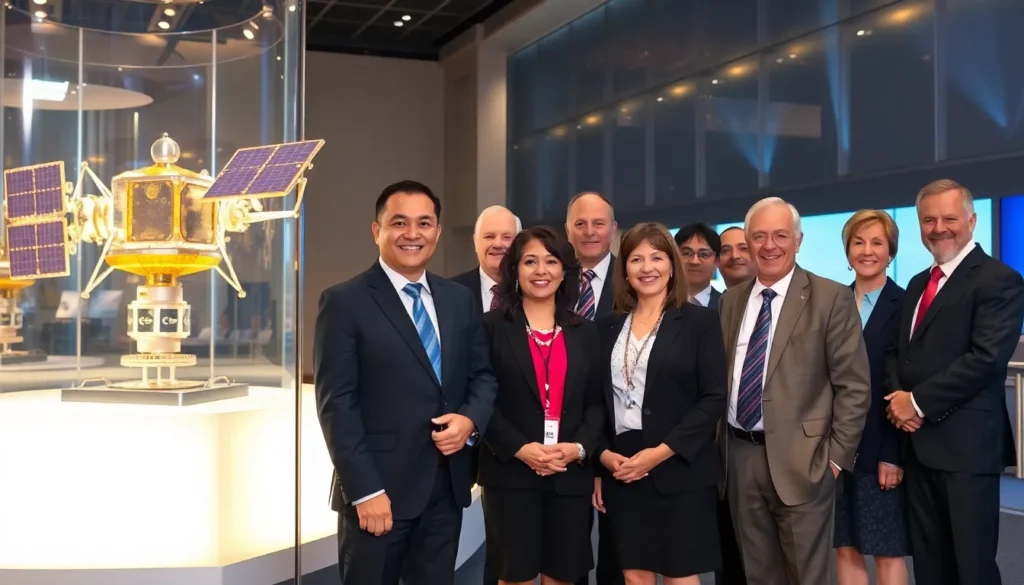When it comes to exploring the cosmos and pushing the boundaries of technology, the Science, Space, and Technology Committee is the ultimate team of intergalactic superheroes—minus the capes, of course. This committee dives into the thrilling world of scientific discovery, ensuring that the U.S. stays at the forefront of innovation. From rocket science to the latest tech gadgets, they’re on a mission to make sure we’re not just watching from the sidelines while aliens take over.
Table of Contents
ToggleOverview of the Science Space and Technology Committee
The Science, Space, and Technology Committee plays a vital role in shaping the U.S. agenda for scientific research and technological advancements. It oversees various aspects of innovation, including space exploration, energy policies, and research funding. Members engage with experts and stakeholders to ensure informed decision-making that drives progress.
Research initiatives supported by the committee focus on critical areas such as aeronautics, biotechnology, and information technology. These initiatives aim to maintain national security, foster economic growth, and enhance global competitiveness. The committee also invests in educational programs to cultivate a future workforce skilled in science and technology.
Legislative responsibilities include drafting and reviewing policies that influence federal funding for research institutions and universities. By securing financial resources, the committee enables groundbreaking studies and advancements in technology. Collaborations with governmental and private entities further strengthen these efforts, promoting innovation in diverse fields.
Advancements made under the committee’s guidance contribute not only to scientific knowledge but also to practical applications in everyday life. Developments in renewable energy technologies and space travel exemplify the far-reaching impact of the committee’s work. Through its comprehensive approach, the Science, Space, and Technology Committee ensures that the U.S. remains at the forefront of scientific discovery and technological innovation.
Key Functions and Responsibilities

The Science, Space, and Technology Committee plays a crucial role in promoting scientific and technological advancements in the U.S. Its responsibilities encompass a wide range of legislative and oversight activities.
Legislative Duties
Committee members draft and propose policies that directly impact federal funding for research institutions. They seek to align governmental initiatives with the needs of scientific communities. Funding allocation prioritizes groundbreaking studies in various fields such as space exploration and renewable energy. Also, members provide guidance on laws that facilitate innovation, ensuring that competitive advantages are maintained. Collaboration with stakeholders often shapes the legislative agenda. Legislative duties ultimately aim to foster advancements that benefit both society and the economy.
Oversight and Investigative Role
Oversight of federal research programs falls under the committee’s purview. Members monitor the implementation of scientific initiatives and ensure accountability within funded projects. Investigative hearings help assess the efficacy and results of government programs. Engaging with experts allows members to gather insights and address challenges within scientific fields. The committee maintains rigorous standards for transparency and effectiveness in research. These oversight responsibilities help drive informed policy-making that promotes national interests in technology and science.
Major Achievements
The Science, Space, and Technology Committee has made significant strides in advancing the United States’ role in space and scientific research. Their accomplishments reflect a commitment to fostering innovation and enhancing national competitiveness.
Contributions to Space Exploration
Outstanding achievements in space exploration highlight the committee’s dedication. They have prioritized funding for NASA’s ambitious missions, such as the Artemis program aimed at sustainable lunar exploration. The committee has overseen the development of commercial partnerships, enabling private companies to access space, thereby driving technological advancements and economic growth. Collaborations with international space agencies promote shared knowledge and resources, enhancing the global presence of the U.S. in space initiatives. Each step taken reinforces the importance of strategic investment in cutting-edge technologies, ensuring continued leadership in space exploration.
Advancements in Scientific Research
Notable progress in scientific research underscores the committee’s impact on various fields. They emphasize funding for groundbreaking studies in renewable energy, biotechnology, and information technology, shaping future innovations. Legislative efforts include crafting policies that directly support research institutions, establishing research grants, and enhancing STEM education. They engage with experts to identify priority areas for technological advancements, ensuring research aligns with national interests. Increased investment in these sectors enhances the U.S. position on the global stage while fostering the development of a skilled workforce equipped for future challenges.
Current Initiatives
The Science, Space, and Technology Committee actively engages in various projects to promote scientific advancement and technological innovation. Ongoing initiatives focus on reinforcing U.S. leadership in space exploration and research.
Ongoing Projects and Programs
NASA’s Artemis program serves as a cornerstone project, aiming for a sustainable presence on the Moon by 2024. Efforts also support emerging technologies, including funding for research in renewable energy systems. The committee oversees partnerships with commercial space enterprises to drive innovation in satellite technology. Additionally, projects in STEM education aim to cultivate a skilled workforce capable of tackling future challenges. Sustaining investments in biotechnology enhances the potential for breakthroughs in health and medicine.
Future Goals and Objectives
Aiming for increased budgets to boost research funding remains a priority for the committee. Enhancing international collaboration in space exploration stands as another objective, seeking partnerships with global entities. Meeting climate goals through renewable energy innovation drives future planning. Strengthening policies focused on information technology also targets improvements in cybersecurity and data privacy. Engaging with local educational institutions to expand STEM outreach efforts is critical for developing careers in science and technology.
Impact on Policy and Innovation
The Science, Space, and Technology Committee significantly influences policy decisions that foster innovation in various fields. Through legislative actions, the committee shapes funding allocations that support cutting-edge research in space exploration and renewable energy systems. Members actively promote initiatives like NASA’s Artemis program, which aims to establish a sustainable lunar presence by 2024.
Innovative partnerships with commercial space enterprises enhance advancements in satellite technology. Research funding directed toward biotechnology and information technology also shows strong committee support. By prioritizing areas that yield substantial returns on investment, members ensure progress toward national goals and global competitiveness.
Accountability remains a key focus as the committee oversees federal research programs. Investigative hearings help assess government initiatives, ensuring their effectiveness and transparency. This oversight facilitates informed decision-making, which is vital for maintaining high standards in scientific research.
Collaboration with international space agencies strengthens the U.S. position in global space initiatives. Engaging with experts and stakeholders enables a holistic approach to emerging technologies. Future goals include expanding research funding to meet climate challenges and enhancing cybersecurity measures to protect sensitive information.
STEM education initiatives receive emphasis to cultivate a skilled workforce for the future. Community outreach efforts aim to develop careers in science and technology. By fostering educational partnerships, the committee ensures that the next generation is equipped to tackle complex challenges ahead.
Overall, the committee’s actions create a robust framework for scientific advancement. Innovative policies and funding strategies help establish a thriving environment for research and development, making a profound impact on society and the economy.
The Science, Space, and Technology Committee stands at the forefront of innovation and discovery in the United States. Its strategic initiatives and legislative actions not only drive advancements in space exploration but also nurture critical research in renewable energy and technology. By fostering collaborations and ensuring accountability, the committee plays a vital role in shaping a competitive future for the nation.
As it continues to prioritize funding and support for STEM education, the committee is paving the way for the next generation of scientists and innovators. With a commitment to transparency and effectiveness, the committee’s influence will undoubtedly resonate across various fields, enhancing both national security and economic growth.




